School Cabinet
2025 - 2026
Shivaji
Tagore
Ashok
Raman
Cabinet Heads
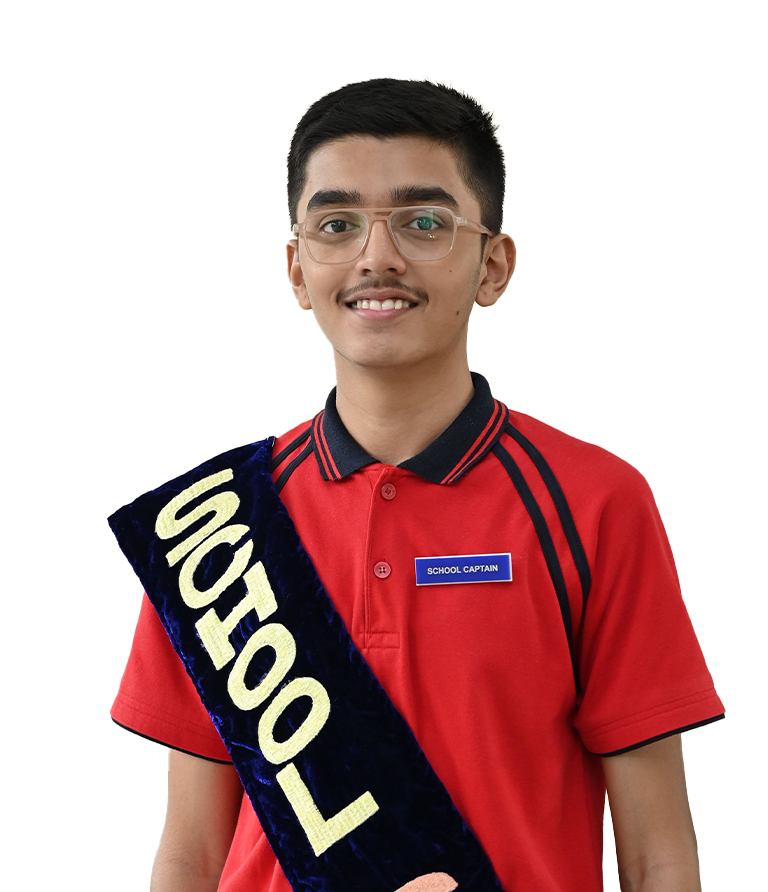
Mast. Harshit Madne
School Captain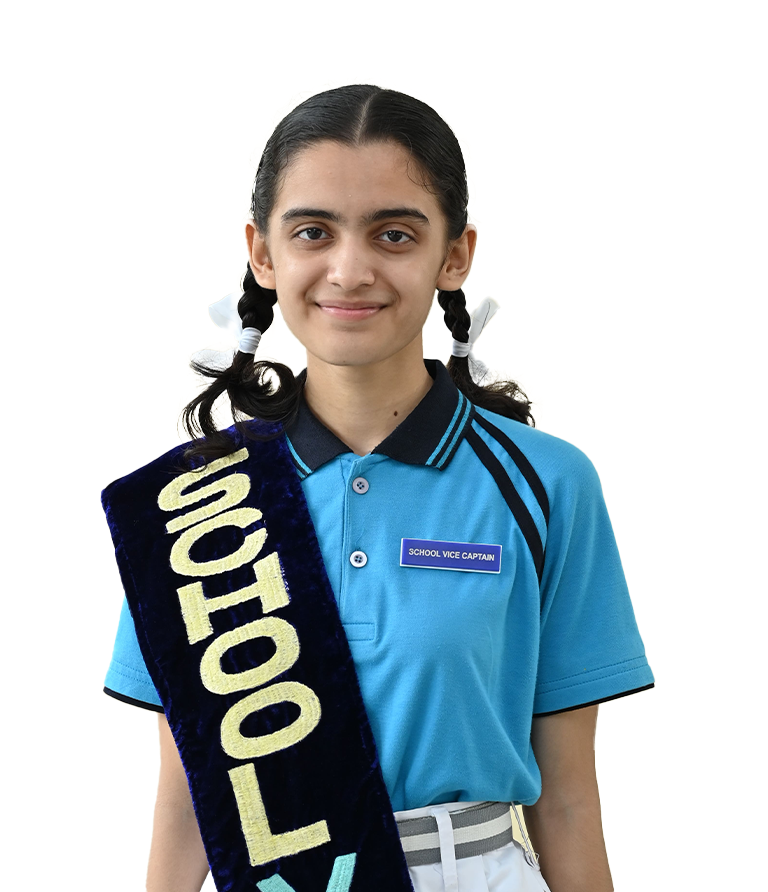
Miss. Vidhi Trivedi
School Vice CaptainShivaji
Chhatrapati Shivaji Maharaj was one of the bravest warrior kings of India. His natural leadership skills were exhibited at a tender age of 16. Shivaji established a royal name for himself in history with his administrative skills by upholding the Swarajya values. Tales of his bravery are countless and stories of his victories innumerable.
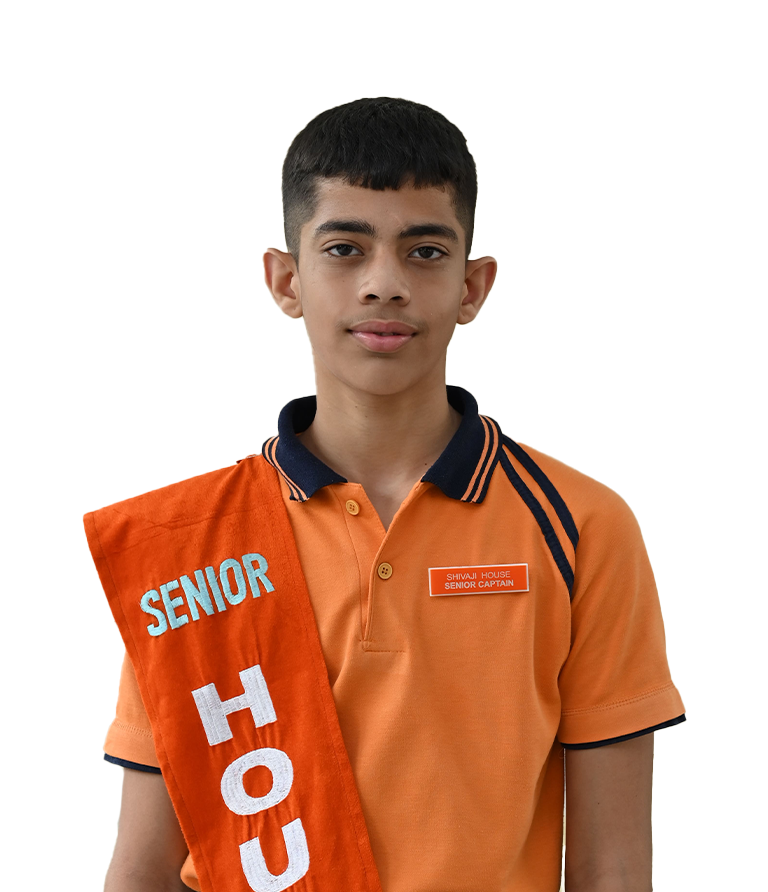
Mast. Upendra Deshpande
Senior House Captain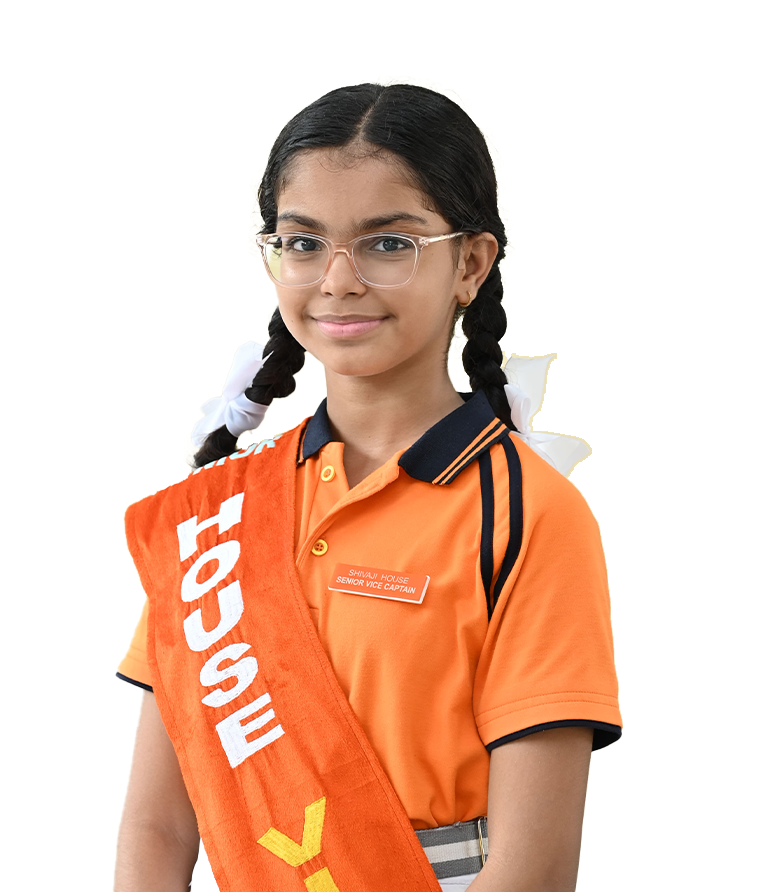
Miss. Nitisha Asia
Senior House Vice Captain
Miss. Raima Kedar
Junior House Captain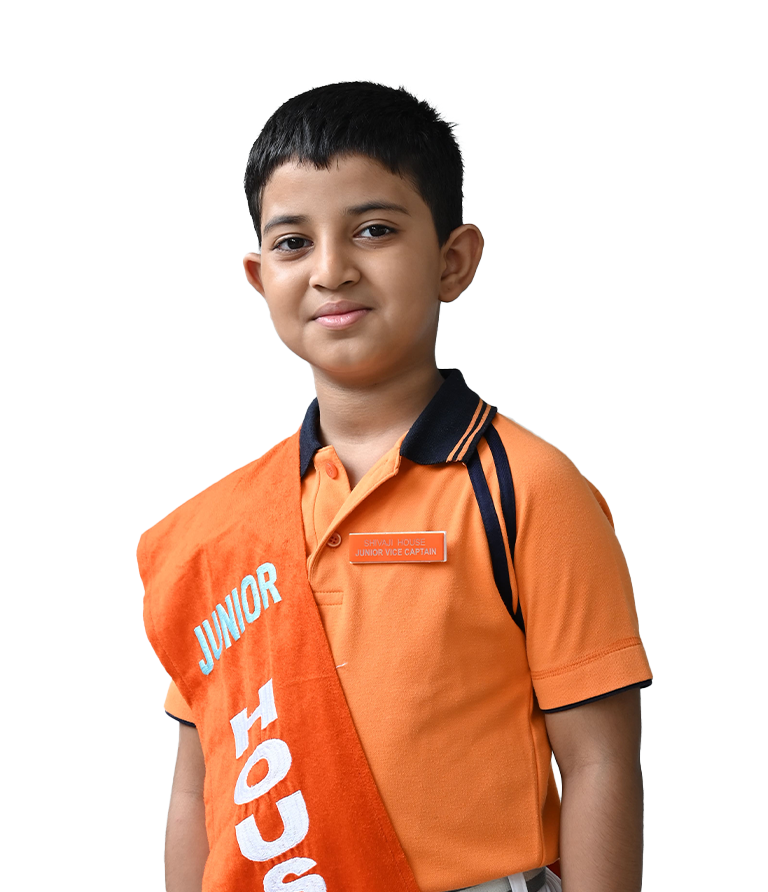
Mast. Vighnesh Bhardwaj
Junior House Vice CaptainTagore
Rabindranath Tagore’s creative output tells you a lot about this Renaissance man. The variety, quality, and quantity are unbelievable. As a writer, Tagore primarily worked in Bengali, but after his success with Gitanjali, he translated many of his other works into English. In 1913, Rabindranath received the Nobel Prize for literature. He was the first Indian to be so honoured.
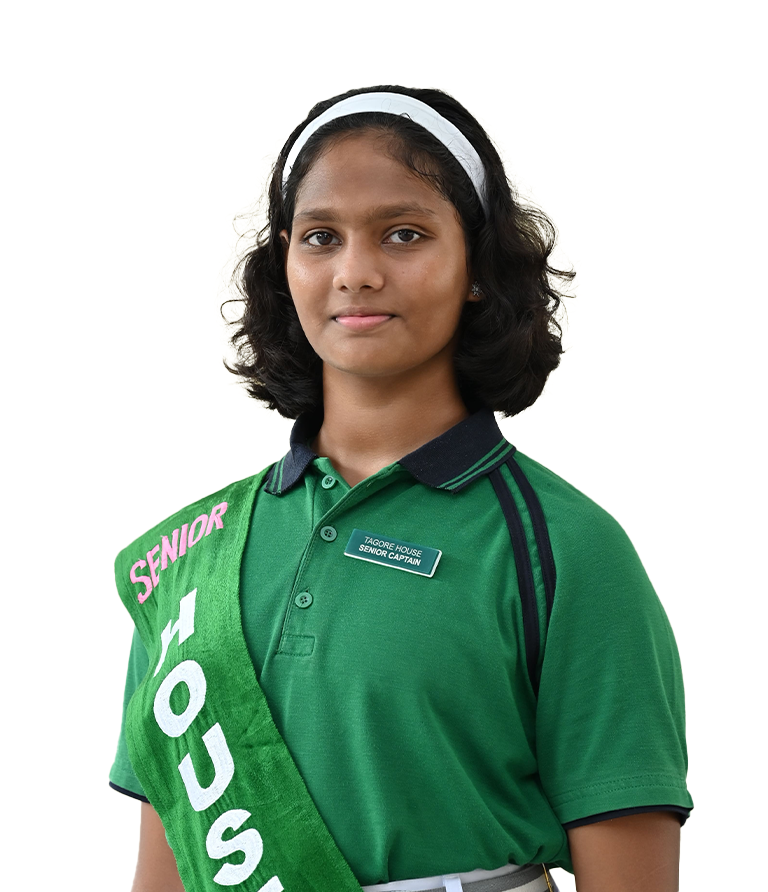
Miss Shreeyasha Dhondalkar
Senior House Captain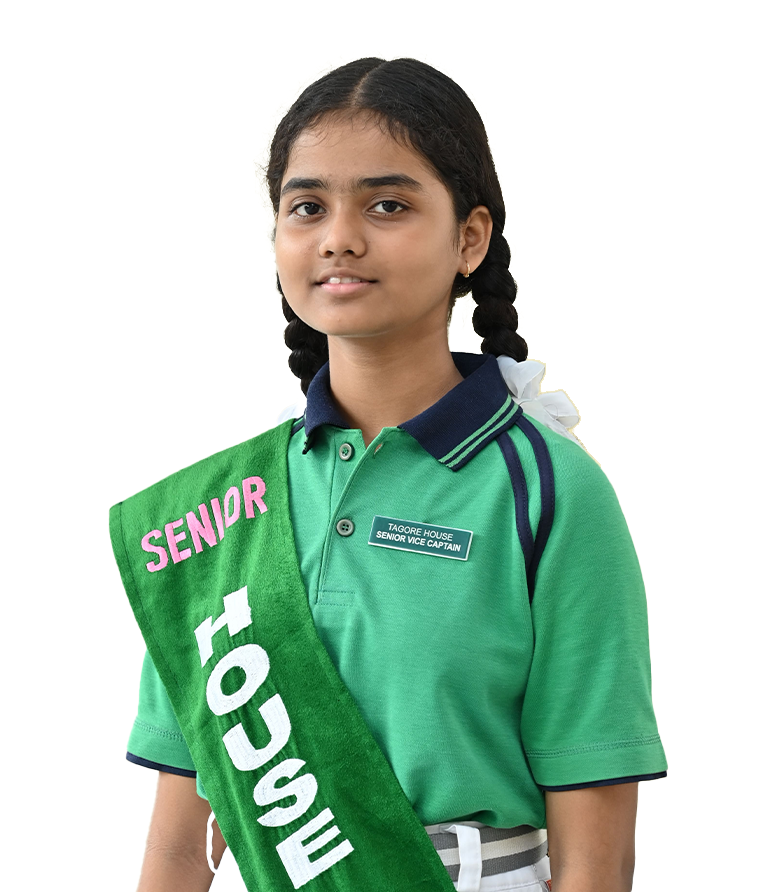
Miss Lipi Kumar
Senior House Vice Captain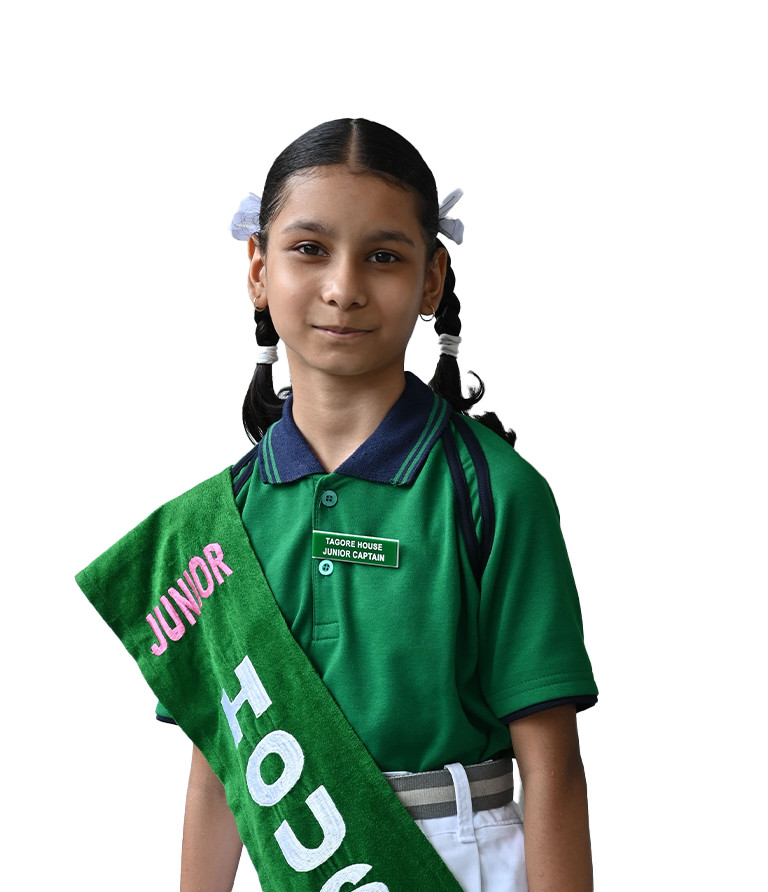
Miss Aarohi Khemka
Junior House Captain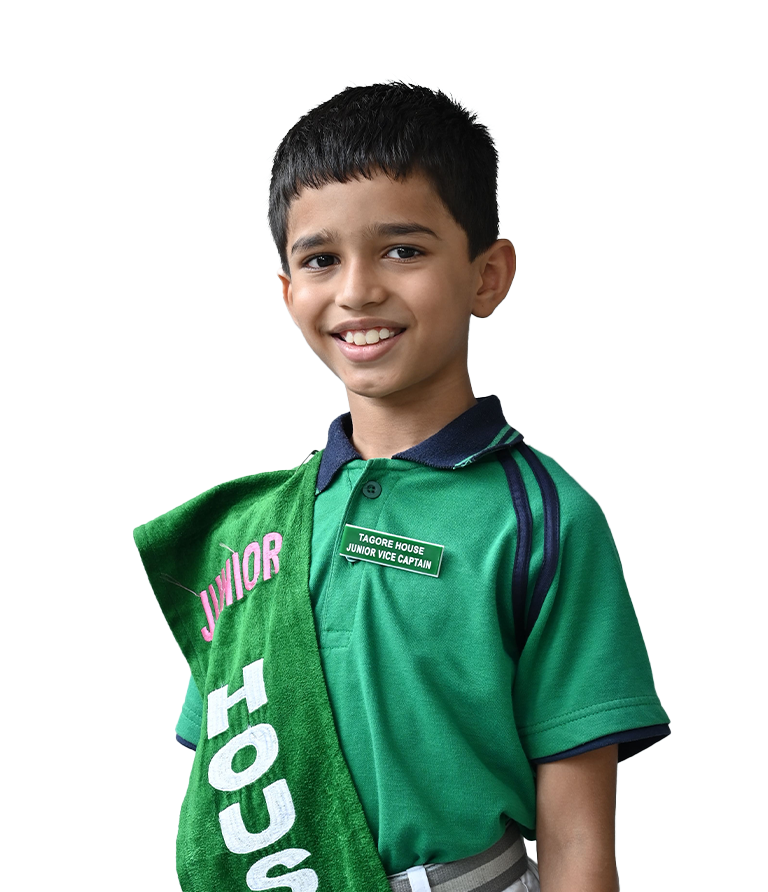
Mast. Parth Paranjape
Junior Vice House CaptainAshoka
Emperor Ashoka was the third ruler of Indian Mauryan Empire, the largest ever in the Indian subcontinent and one of the largest empires at its time. He became a model of kingship in Buddhist tradition. He followed the precepts outlined by Lord Buddha. Based on the principles, Ashoka dedicated the practice of Dharma, which became the backbone of his philanthropic and tolerant administration.
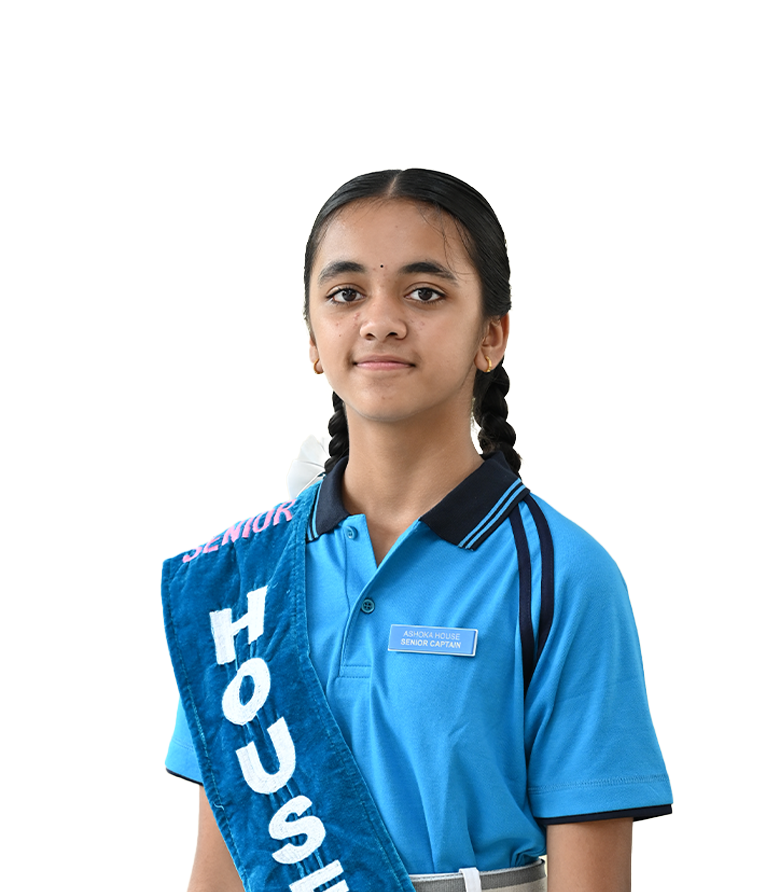
Miss. Narayani Gokhle
Senior House Captain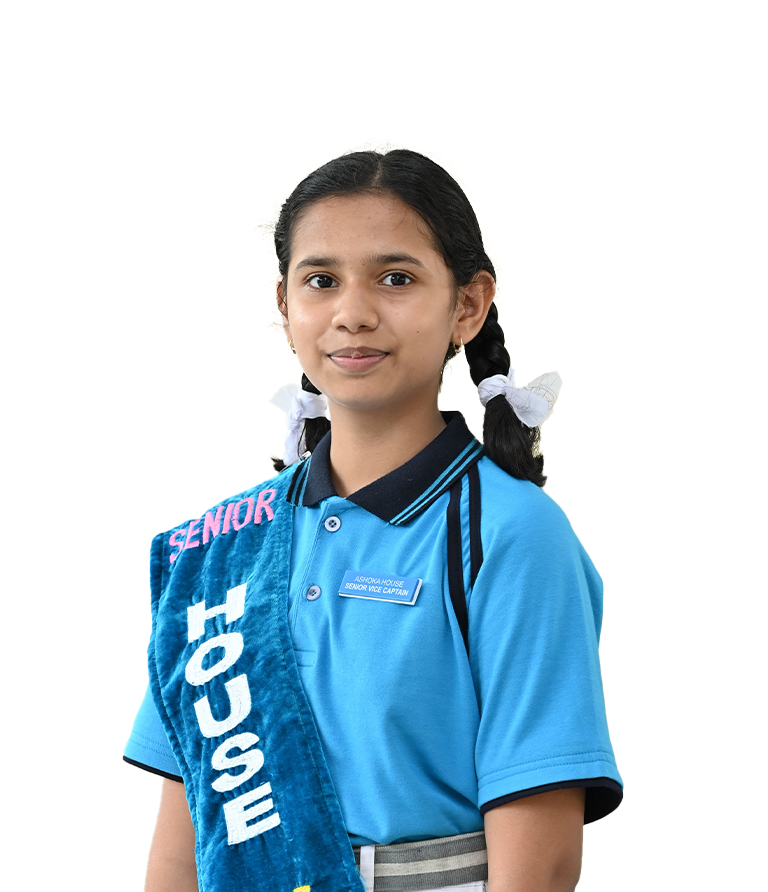
Miss. Nirmayee Haridas
Senior House Vice-Captain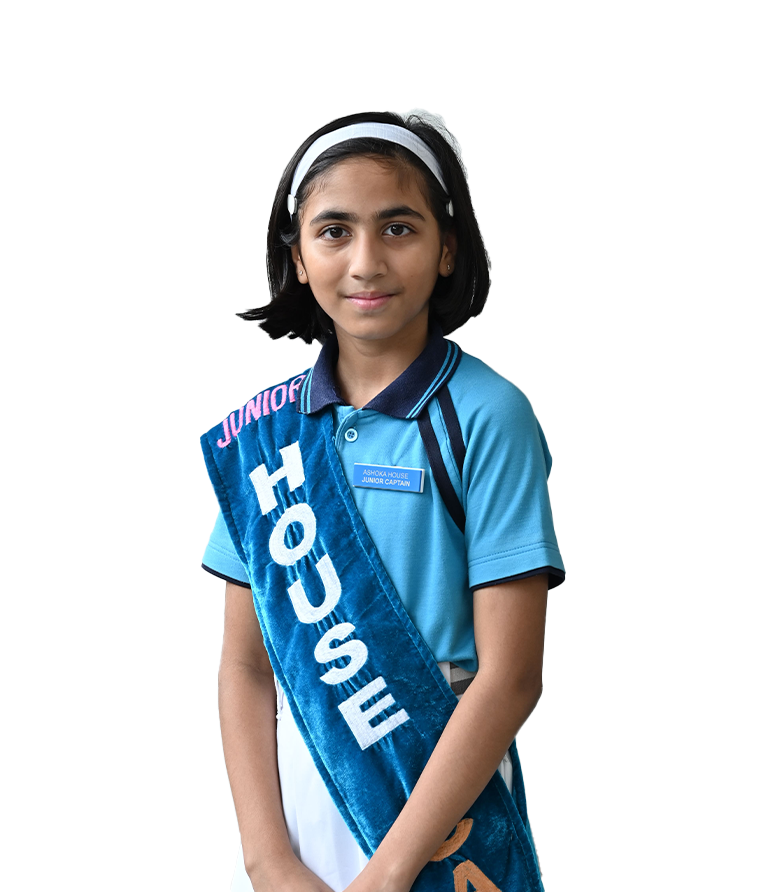
Miss. Divyanka Bhoyar
Junior House Captain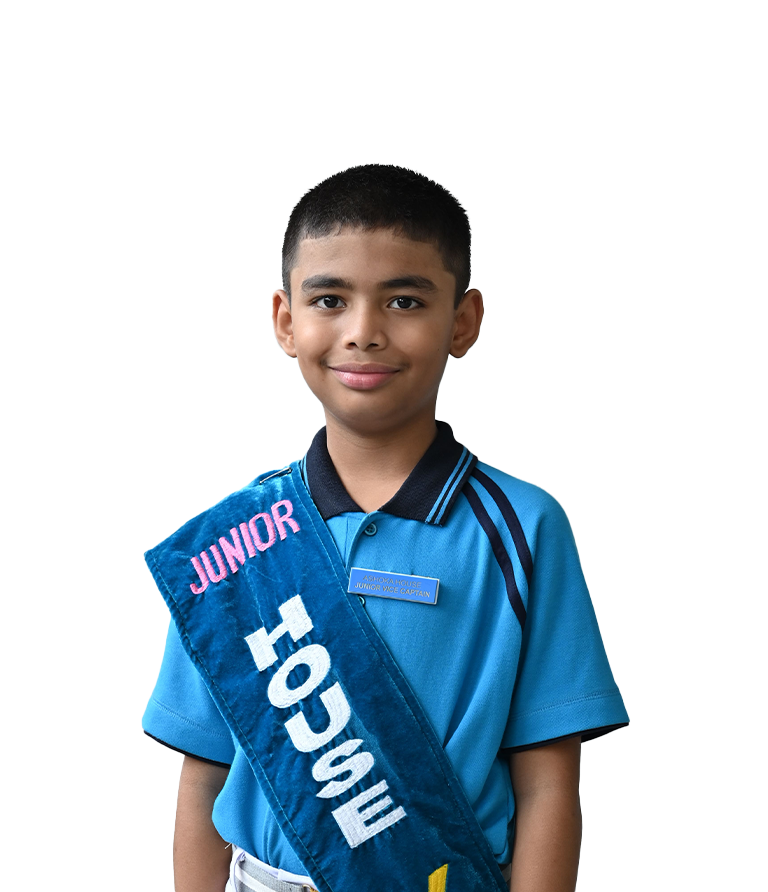
Mast. Durvank Dhoke
Junior House Vice CaptainRaman
Sir Chandrasekhara Venkata Raman, the Indian physicist who made his motherland proud by becoming the first Indian to win the Nobel Prize for the discovery of ‘Raman effect’, was a scientist par excellence. Raman was also honored with the Bharat Ratna, India’s highest civilian award, in 1954 in recognition of his invaluable contributions to the field of science.
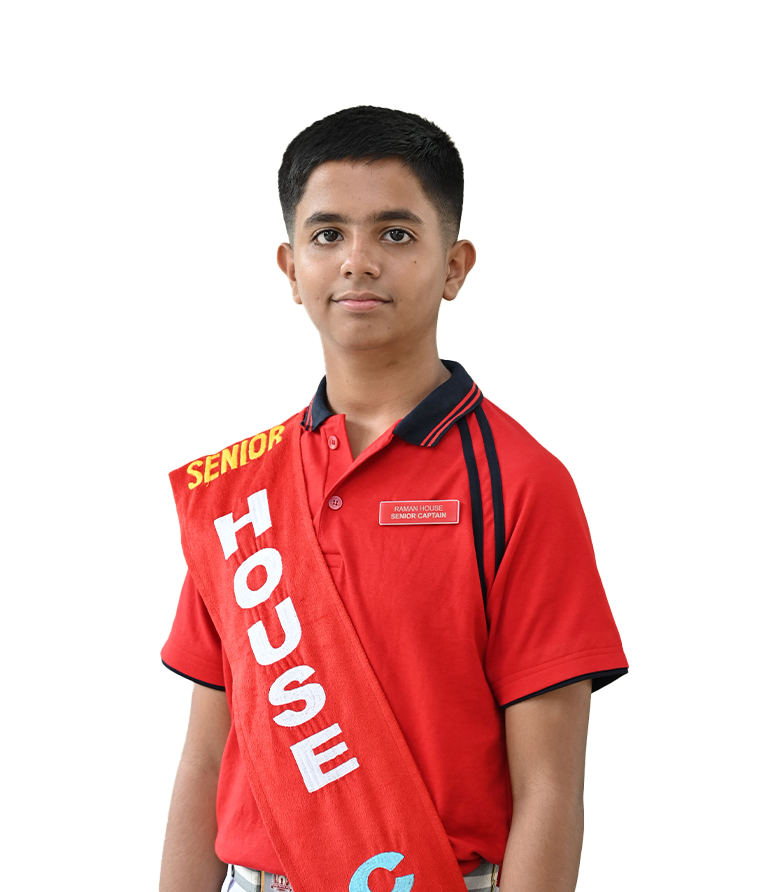
Mast. Shourya Deshpande
Senior House Captain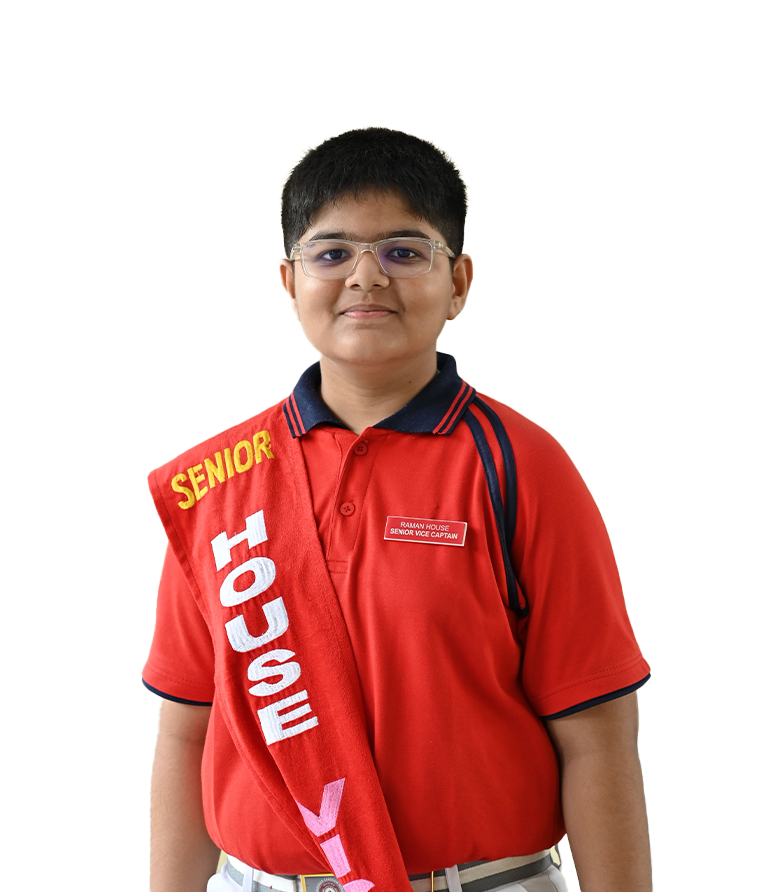
Mast. Satvik Kadu
Senior House Vice-Captain
Miss. Tithi Wadibhasme
Junior House Captain